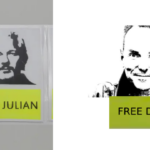Stop the Extradition: AG Stalls on Decision to Extradite Dan Duggan to the US

Since NSW Magistrate Daniel Reiss greenlighted the US request to extradite Australian citizen Daniel Duggan on 24 May 2024, the final decision on whether to send the father-of-six away bounced back to federal attorney general Mark Dreyfus, who was responsible for providing the initial approval for extradition hearings to proceed in December 2022, following the man’s arrest two months prior.
Duggan, a 56-year-old former US marine pilot, is continuing to stew in prolonged isolation within a cell at the Macquarie Correctional Centre maximum security facility.
This is Dan’s 26th month inside without any local charge. The US accuses Duggan of having conspired with eight others to export US defence services in the form of flight training in violation of a US arms control embargo against China.
Following Reiss’ determination, Duggan’s legal team, led by renowned barrister Bernard Collaery, had the opportunity to provide a submission to the chief lawmaker outlining reasons as to why the extradition case should be dropped and the 89-page document was presented on 23 August.
Yet, as December rolls around, the potential for the attorney general to deliver his decision on Duggan via the cover of the Christmas/New Years period is now, once again, on the horizon.
Following Dan’s October 2022 arrest, the US made a formal extradition request on 9 December, with Dreyfus having until 25th of that month to respond. And on 28 December 2022, it was announced to the public that the AG had approved the extradition process, while most people were on holidays.
The stark anomaly underpinning the Duggan case is that the federal law governing extraditions requires that ‘dual criminality’ is met, which means that the crime that the foreign country is seeking to extradite a person from Australia in relation to must also be a criminal offence here.
In their submission, however, Duggan’s lawyers make clear that at the time their client’s alleged wrongdoing took place in South Africa over 2012, there was no Australian criminal offence outlawing those same actions in this country.
And it’s this obvious injustice that underpins the Duggan case, along with a number of other questionable aspects, that lead to the concern that attorney general Dreyfus may follow his own precedent and quietly deliver his final decision on Duggan in the interim between Christmas and New Years, when much of the nation is glued to the Boxing Day cricket match.
A pause to ensure criminality
A 2017 District Court of Columbia grand jury indictment lays four charges against Duggan: one count of money laundering, another of conspiracy to defraud and two counts of violating an arms embargo. And it’s this last crime, the suggested twice breaking of the US International Traffic in Arms Regulations (ITAR) ban on exports to China, where due process appears to have fallen down.
Duggan was a US marine for the 13 years to 2002, which was when he first moved to Australia. He went on to marry his wife Saffrine and Dan became naturalised in 2012.
The actions of the pilot that are now the subject of criminal scrutiny occurred at the Test Flying Academy of South Africa (TFASA) over March, April and November 2012. And the flight training involved Duggan teaching Chinese nationals how to land jets on aircraft carriers. However, while Dan understood the students to be civilians, Washington claims they were military pilots.
Collaery’s submission to the AG explains that a US affidavit reveals that during the 2016 indictment hearings, the grand jury requested a tolling period, or a pause to the five-year statute of limitations relating to the alleged crimes, that translated into an extra 629 days, in which it could request evidence from Australia and this country would have time to respond.
The US requested the tolling period on 23 June 2016 and on the 8th of August, the tolling period was applied. But by the time the response from this country was received in the US, 14 March 2018, the US grand jury’s indictment had already been finalised, while the Australian response was received within the tolling period, which expired on 1 January 2019.
The Australian government, however, has since failed to respond to a request from Duggan’s legal team regarding an explanation as to the official purpose of the tolling period, so his lawyers have concluded that the only possible inference that can be made here is that the grand jury sought to ensure that the requirement of dual criminality could be met under Australian law.
Fixing the crime after the fact
The Extradition Act 1988 (Cth) requires that if a foreign country wants to extradite an individual, the crime they stand accused of overseas must be a crime here.
Yet, under section 19(2)(c) of the Act, dual criminality is met “if the conduct… constituting the offence in relation to the extradition country” is also a crime in Australia “at the time at which the extradition request” was received.
As a Free Dan Duggan campaign spokesperson has explained, this law allows this nation to create an offence to criminalise behaviour that wasn’t a crime in this country at the time the alleged offending occurred, and this can be done in order to facilitate an extradition request from a foreign country. As the spokesperson put it, this legal mechanism provides “a state of perpetual retrospectivity”.
In terms of the Duggan indictment, dual criminality was based upon section 83.3 of the Criminal Code Act 1995 (Cth), which contains the criminal offence of the providing military-style training that involves a foreign principal. And this crime carries a maximum penalty of up to 20 years inside.
As the Collaery submission makes clear, however, this offence wasn’t on the Australian books in 2012 at the time of Duggan’s alleged offending, and nor was it a crime at the time that his indictment was sealed. But rather this crime was not enacted into federal law until after the passing of the National Security Legislation Amendment (Espionage and Foreign Interference) Bill 2018 in June 2018.
In his submission to the chief lawmaker, Collaery makes certain that a tolling period can only be granted when a request has been made for evidence and that information is likely to be present in a foreign country. The barrister adds that the question involved here is whether the jury should have made such a request without providing factual representations to support it.
Manufacturing criminals
Prior to his December 2022 arrest, Duggan had no idea that a grand jury indictment had been issued in his name. However, the revelations raised by Collaery and his team show that the Australian government has been intimately involved in the White House attempt to extradite the Australian going back at least to 2016.
Colleary further put it to the attorney general in his submission that the Australian government created the section 83.3 offence in order to ensure that ‘dual criminality’ was established, and the implication is that the drafters of the law did this with the understanding that the provisions of section 19(2)(c) of the Extradition Act had been written in order to facilitate such a need.
Attached to the submission was a commentary by intelligence analyst Dr Glenn Kolomeitz of Cardinal Legal, and within it, the lawyer suggests that as the offence that facilitates Duggan’s extradition wasn’t passed until after the 2017 indictment had been finalised, this leads to “a reasonable inference [that] the timing has been exploited or manipulated in order to facilitate” extradition.
Kolomeitz adds that “there is no expressed or implied prohibition in the Australian Constitution on the enactment of laws with retrospective effect”.
As to why Duggan has been targeted, the legal professional told Sydney Criminal Lawyers last year that he considers the case “reeks of politics”, as the year in which the indictment was produced, 2017, was also the year when the US, the UK and this country began framing “China as an adversary”.
“The indictment refers to co-conspirators besides Dan,” Kolomeitz said in August 2023. “And that, in itself, is problematic because some of them are British, and the British have said they haven’t done anything wrong. The UK said that none of their people had broken any rules.”
A political pawn
As for the attorney general, if he decides to greenlight Duggan’s extradition to the United States to stand trial over what was a legal and common practice for ex-military pilots at the time, this isn’t going to win him any popularity contests, especially in light of all the inconsistencies regarding the evidence that is supposed to establish the case against the Australian citizen.
Back in December 2022, when Dreyfus announced his original decision to greenlight the US extradition process to proceed in relation to an Australian father-of-six, it’s likely that this was strategically done on the day following Boxing Day, so as to ensure most of the population was unaware that this had occurred.
And considering the current climate, which involves prosecuting whistleblowers, the release of Assange prior to US extradition, as well as the fallout from this nation being increasingly joined at the hip to Washington’s foreign policy, if Dreyfus does decide to authorise Duggan’s extradition, there’s very good reason why he’d chose to slyly deliver it during those twilight days just before new year.







